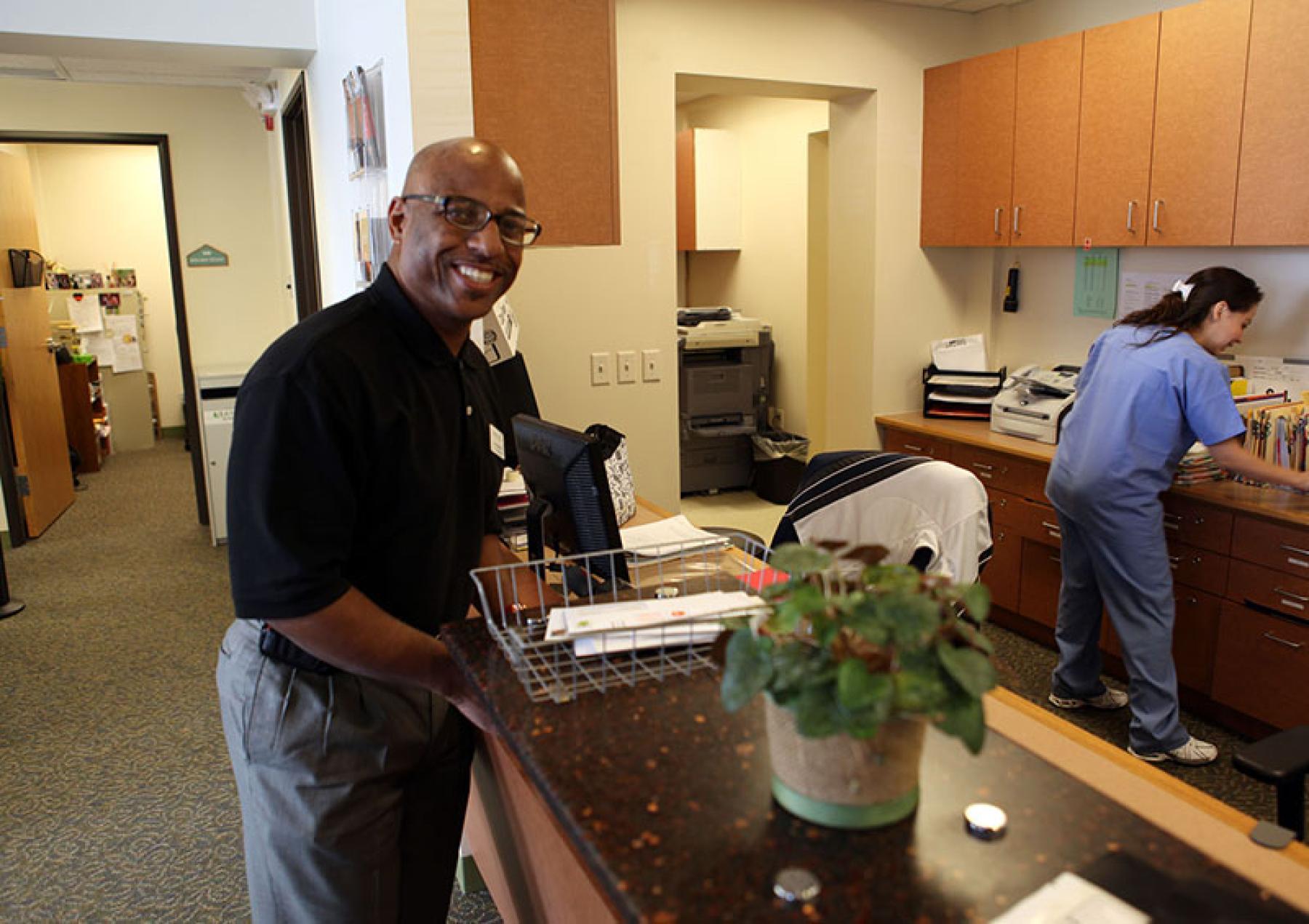Adapting and Innovating at Inner City Health Center

Inner City Health Center (ICHC) is a true safety net, there to catch Coloradans who’ve lost their footing and have been told “no” too many times.
“We are a provider who catches those who fall through the cracks of the health care system,” said Kraig Burleson, ICHC’s CEO.
In preparation for Safety Net Clinic Week, I visited Inner City Health Center with a colleague from CHI for a tour and a conversation with Burleson about the past, present and future of the safety net clinic.
ICHC is part of Colorado’s network of community-based clinics that provide high-quality, low-cost care to underserved populations. Safety net clinics primarily serve Coloradans who are underinsured, uninsured, or publicly insured through Medicaid the Child Health Plan Plus or Medicare. Each clinic is unique, differing in structure, mission and identity, but all community safety net clinics work to make sure no one goes without needed care.
ICHC has been in central Denver since its founding in 1983. ICHC’s mission is to create a health care home for Coloradans who’ve been turned away elsewhere. In the clinic, this goal translates to a focus on human worth and relationships, building trust between patients and providers, and respecting the dignity of everyone who walks through the door. ICHC aims to provide fully integrated health care in one place. ICHC staffs medical, dental and mental health care professionals who provide pre- and post-natal care, pediatric care and adult care all within the walls of one clinic.
The efficient structure draws over 20,000 patients to the clinic every year from all over the state. Over half of its patients are Hispanic, and African American and white patients each make up around 10-15 percent of the remainder.
When we were walking through the clinic, we heard multiple languages blending together. Patients are greeted and cared for by people who speak their language — there is no need for translation.
A majority of ICHC’s patients are uninsured – around 68 percent. ICHC welcomes all patients, insured or not. “We try not to say ‘no’,” Burleson said.
Still, everybody at ICHC pays something for their services. The clinic uses a sliding scale to determine what each patient will be charged. The price takes into account a patient’s insurance, if any, income and family size. ICHC is also open to all patients regardless of where they live.
ICHC is continuously adapting to meet the needs of its patients. For instance, Burleson has seen many more Millennial and GenX patients in recent years. He says they need care just as much as any other patient even though they don’t always identify as “poor,” just “broke”.
Even more recently, the clinic has been seeing fewer patients. Burleson said that a focus group suggested that patients who are immigrants without documents may be afraid to seek help, even when they really need it. ICHC staff said they will continue to work so that they can provide a safe and welcoming space for everybody, regardless of their background.
We were energized after our visit at ICHC. The halls were filled with caring, smiling providers, along with patients who appeared happy to be receiving care at a place like ICHC. It’s vital work and worth celebrating this Safety Net Clinic Week.
